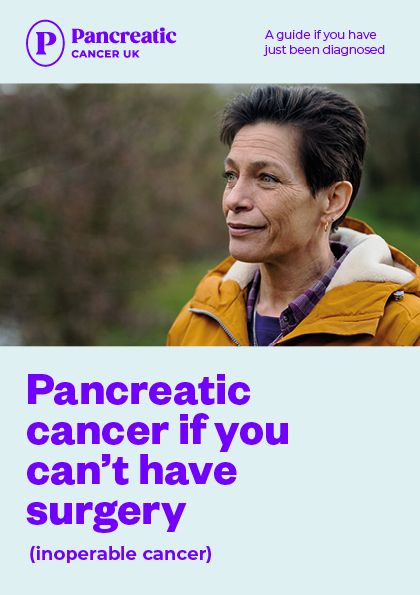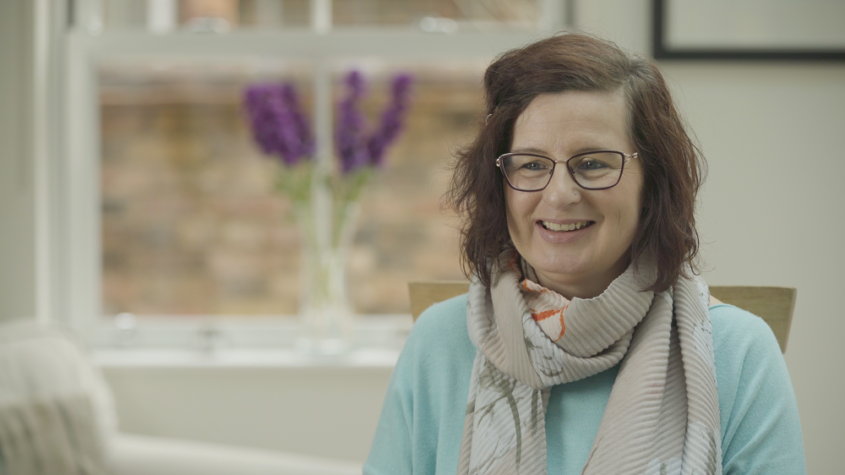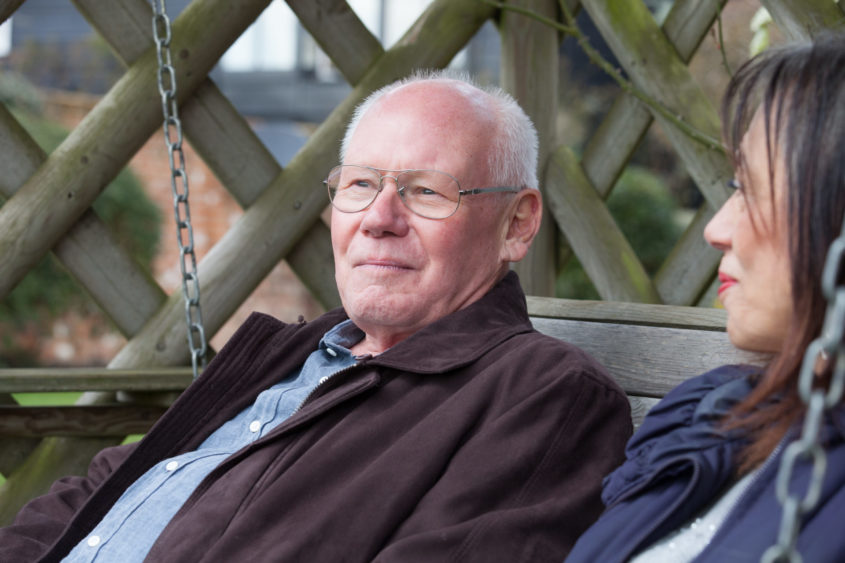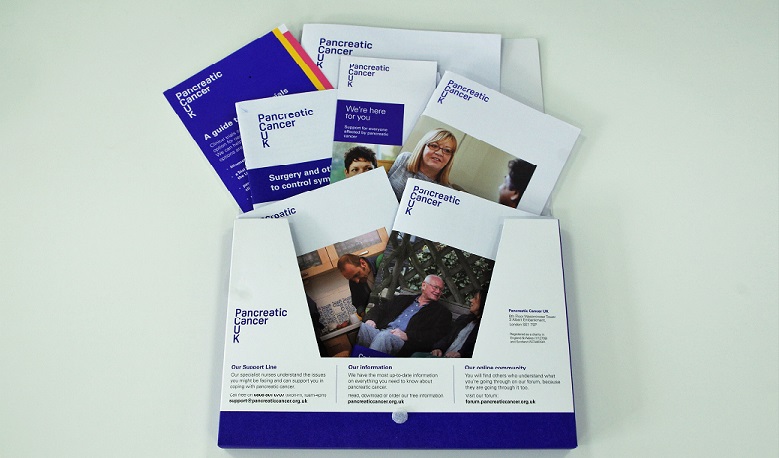What are my treatment options?
You may be able to have treatments to try to control the cancer, such as chemotherapy. The aim of treatment will be to control the growth of your cancer, manage any symptoms and generally improve how you feel. If you have symptoms, there are also treatments to help manage these.
Whatever your options, having treatment is your decision, and you don’t have to decide anything straight away. You may be offered another appointment if you need it to discuss any questions you have.
Treatments for locally advanced cancer
If you have locally advanced pancreatic cancer, it’s not usually possible to remove the cancer with surgery. You may be offered chemotherapy on its own first, and then sometimes with radiotherapy (chemoradiotherapy) afterwards. This aims to shrink the cancer, slow down its growth, and control your symptoms. For a small number of people, this may make surgery to remove the cancer possible.
Treatments for advanced cancer
If you have advanced cancer and are well enough, you may be offered chemotherapy. Chemotherapy may help to control the cancer and help with symptoms. It won’t cure the cancer, but it may help you live longer and generally feel better.
If you have symptoms from the cancer there are also treatments for these. A specialist palliative care team or supportive care team can help manage symptoms. They also provide emotional and practical support. They can help you live as long and as comfortably as possible, and plan for the future. They will also offer support to your family.
Some people find the thought of palliative care upsetting. But these services aren’t just for people at the end of their life. They are available at any point during treatment or care for people with cancer that can’t be cured.
Some people with advanced pancreatic cancer may not be able to have treatment to control their cancer. This will depend on your situation. For example, you might not be physically well enough for treatments like chemotherapy. Some people may decide not to have treatment for the cancer. This can be for lots of different reasons, and will be a very personal decision to you. You can still have treatments to help with any symptoms.
Clinical trials
Clinical trials are carefully controlled medical research studies that involve people. Most trials in pancreatic cancer aim to find better treatments. Ask your medical team whether there are any suitable clinical trials that you could take part in. A clinical trial may give you the chance to try a new treatment. But there’s no guarantee that it will be any better than current treatments.
Getting a second opinion
You can ask for a second opinion about your treatment options from a different medical team, if you want one. Most doctors will help you do this, if you ask them. But don’t delay your treatment while you get a second opinion, as it can take several weeks.










